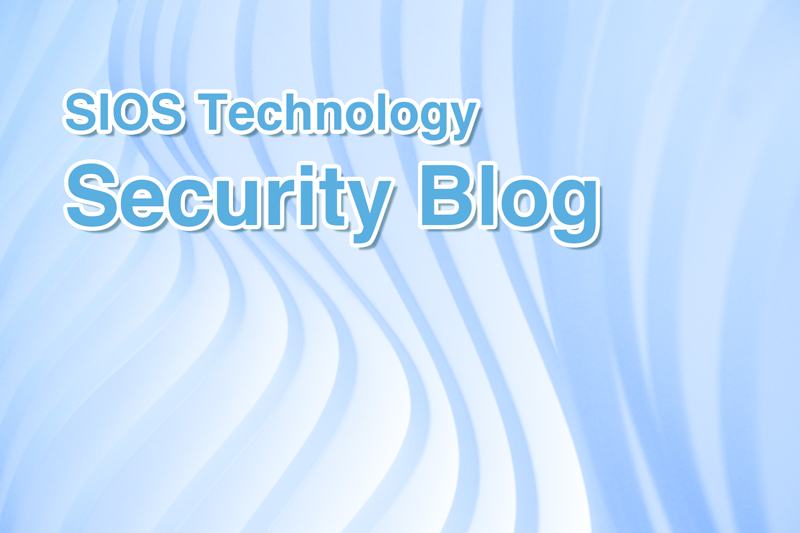Xenの脆弱性 ( XSA-216, XSA-217, XSA-218, XSA-219, XSA-220, XSA-221, XSA-222, XSA-223, XSA-224, XSA-225)
こんにちは。SIOS OSSエバンジェリスト/セキュリティ担当の面 和毅です。
06/20/2017にXen (x86)に対する複数の脆弱性の情報(XSA-216: CVE-2017-10911 / XSA-217: CVE-2017-10912 / XSA-218: CVE-2017-10913, CVE-2017-10914 / XSA-219: CVE-2017-10915 / XSA-220: CVE-2017-10916 / XSA-221: CVE-2017-10917 / XSA-222: CVE-2017-10918 / XSA-223: CVE-2017-10919 / XSA-224: CVE-2017-10920, CVE-2017-10921, CVE-2017-10922 / XSA-225: CVE-2017-10923)が公開されました。今回はこれらの脆弱性の概要と、各ディストリビューションの対応について簡単にまとめてみます。
一次情報源
https://xenbits.xen.org/xsa/advisory-216.html
https://xenbits.xen.org/xsa/advisory-217.html
https://xenbits.xen.org/xsa/advisory-218.html
https://xenbits.xen.org/xsa/advisory-219.html
https://xenbits.xen.org/xsa/advisory-220.html
https://xenbits.xen.org/xsa/advisory-221.html
https://xenbits.xen.org/xsa/advisory-222.html
https://xenbits.xen.org/xsa/advisory-223.html
Priority
Important/Moderate
修正方法
各ディストリビューションの情報を確認してください。
CVE概要(詳細はCVEのサイトをご確認ください)
- XSA-216: CVE-2017-10911
ゲストOSユーザによる、ホストOS(または他のゲストOS)のメモリ内の機密情報取得の可能性
重要度 – Moderate
linux kernel 4.11.8までのdrivers/block/xen-blkback/blkback.c中のmake_response()関数に問題が有り、Xenブロックインターフェイス レスポンス構造体中の、初期化されていないパディングフィールドをコピーして利用することにより、ゲストOSがホストOS(或いは他のゲストOS)のカーネルメモリ中の機密情報を取得される可能性が有ります。
- XSA-217: CVE-2017-10912
ゲストOSユーザによるホストOS上の特権取得の可能性
重要度 – Important
4.8.xまでのXenでpage転送の処理に問題が有り、ゲストOS上のユーザがホストOS上の特権を取得できる可能性が有ります。
- XSA-218(1): CVE-2017-10913
バックエンドの攻撃者による機密情報の取得や特権昇格の可能性
重要度 – Important
4.8.xまでのXenのgrant-table機能には並列でunmap呼び出しが行われた際に誤ったマッピング情報を提供するため、これによりバックエンドの攻撃者は機密情報の取得や特権昇格の可能性が有ります。
- XSA-218(2): CVE-2017-10914
ゲストOSのユーザによるDoS(memory corruption)や機密情報の取得、特権昇格の可能性
重要度 – Important
4.8.xまでのXenのgrant-table機能には二重開放による競合状態が引き起こされる可能性があるため、これによりゲストOSのユーザによるDoS(memory corruption)や機密情報の取得、特権昇格の可能性が有ります。
- XSA-219: CVE-2017-10915
ゲストOSのユーザによるXen特権の取得の可能性
重要度 – Important
4.8.xまでのXenのshadow-ページング機能にページリファレンスの管理ミスが有りによる競合状態が発生し、これによりゲストOSのユーザによるXen特権の取得の可能性が有ります。
- XSA-220: CVE-2017-10916
ゲストOSユーザによるASLR等の保護メカニズムの無効化の可能性
重要度 – Important
4.8.xまでのXenのvCPUコンテキストスイッチの実装で、Memory Protection Extensions(MPX)とProductio Key(PKU)機能に問題が有り、ASLゲストOSユーザによるASLR等の保護メカニズムの無効化が行われる可能性が有ります。
- XSA-221: CVE-2017-10917
ゲストOSユーザによるDoS(NULLポインタディリファレンスとホストOSのクラッシュ)や機密情報取得の可能性
重要度 – Important
4.8.xまでのXenでは、Pollしたイベントチャネルポートの検証を行っていないため、これを利用してゲストOSのユーザがDoS(NULLポインタディリファレンスとホストOSのクラッシ>ュ)や機密情報取得を行える可能性が有ります。
- XSA-222: CVE-2017-10918
ゲストOSユーザによるホストOSへのアクセス特権取得の可能性
重要度 – Important
4.8.xまでのXenでは、P2M操作を行っている際のメモリアロケーションの確認が行われておらず、これによりゲストOSユーザがホストOSへのアクセス特権を取得できる可能性があります。
- XSA-223: CVE-2017-10919
ゲストOSユーザによるDoS(ハイパーバイザーのクラッシュ)の可能性
重要度 – Moderate
4.8.xまでのXenでは、仮想割り込み操作に問題が有り、これによりゲストOSユーザがDoS(ハイパーバイザーのクラッシュ)を引き起こせる可能性があります。
- XSA-224(1): CVE-2017-10920
ゲストOSのユーザによるDoS(count mismanagementとmemory corruption)や、ホストOSアクセスの特権を取得される可能性
重要度 – Important
4.8.xまでのXenのgrant-table機能は、GNTMAP_host_mapのアンマッピングだけが続く場合の、GNTMAP_device_mapとGNTMAP_host_mapの処理が適切でなく、これによりゲストOSのユーザによるDoS(count mismanagementとmemory corruption)や、ホストOSアクセスの特権を取得される可能性が有ります。
- XSA-224(2): CVE-2017-10921
ゲストOSのユーザによるDoS(count mismanagementとmemory corruption)や、ホストOSアクセスの特権を取得される可能性
重要度 – Important
4.8.xまでのXenのgrant-table機能は、GNTMAP_device_mapとGNTMAP_host_mapに充分なカウントタイプが保証されていないため、これによりゲストOSのユーザによるDoS(count mismanagementとmemory corruption)や、ホストOSアクセスの特権を取得される可能性が有ります。
- XSA-224(3): CVE-2017-10922
ゲストOSのユーザによるDoS(loss of grant trackability)の可能性
重要度 – Important
4.8.xまでのXenのgrant-table機能は、MMIO領域にリファレンスを与える機能が適切でないため、これによりゲストOSのユーザによるDoS(loss of grant trackability)の可能性が有ります。
- XSA-225: CVE-2017-10923
ゲストOSのユーザによるDoS(ハイパーバイザーのクラッシュ)の可能性
重要度 – Moderate
4.8.xまでのXenでは、SGIを送信する際にvCPUアレイインデックスの検証を行わないため、これによりゲストOSのユーザによるDoS(ハイパーバイザーのクラッシュ)の可能性が有ります。
主なディストリビューションの対応方法
詳細は、各ディストリビューションの提供元にご確認ください
Debian
https://security-tracker.debian.org/tracker/CVE-2017-10911
https://security-tracker.debian.org/tracker/CVE-2017-10912
https://security-tracker.debian.org/tracker/CVE-2017-10913
https://security-tracker.debian.org/tracker/CVE-2017-10914
https://security-tracker.debian.org/tracker/CVE-2017-10915
https://security-tracker.debian.org/tracker/CVE-2017-10916
https://security-tracker.debian.org/tracker/CVE-2017-10917
https://security-tracker.debian.org/tracker/CVE-2017-10918
https://security-tracker.debian.org/tracker/CVE-2017-10919
https://security-tracker.debian.org/tracker/CVE-2017-10920
https://security-tracker.debian.org/tracker/CVE-2017-10921
Red Hat Enterprise Linux/CentOS
https://access.redhat.com/security/cve/CVE-2017-10911
https://access.redhat.com/security/cve/CVE-2017-10912
https://access.redhat.com/security/cve/CVE-2017-10913
https://access.redhat.com/security/cve/CVE-2017-10914
https://access.redhat.com/security/cve/CVE-2017-10915
https://access.redhat.com/security/cve/CVE-2017-10916
https://access.redhat.com/security/cve/CVE-2017-10917
https://access.redhat.com/security/cve/CVE-2017-10918
https://access.redhat.com/security/cve/CVE-2017-10919
https://access.redhat.com/security/cve/CVE-2017-10920
https://access.redhat.com/security/cve/CVE-2017-10921
Oracle Linux
Ubuntu
https://people.canonical.com/~ubuntu-security/cve/2017/CVE-2017-10911.html
https://people.canonical.com/~ubuntu-security/cve/2017/CVE-2017-10912.html
https://people.canonical.com/~ubuntu-security/cve/2017/CVE-2017-10913.html
https://people.canonical.com/~ubuntu-security/cve/2017/CVE-2017-10914.html
https://people.canonical.com/~ubuntu-security/cve/2017/CVE-2017-10915.html
https://people.canonical.com/~ubuntu-security/cve/2017/CVE-2017-10916.html
https://people.canonical.com/~ubuntu-security/cve/2017/CVE-2017-10917.html
https://people.canonical.com/~ubuntu-security/cve/2017/CVE-2017-10918.html
https://people.canonical.com/~ubuntu-security/cve/2017/CVE-2017-10919.html
https://people.canonical.com/~ubuntu-security/cve/2017/CVE-2017-10920.html
https://people.canonical.com/~ubuntu-security/cve/2017/CVE-2017-10921.html
https://people.canonical.com/~ubuntu-security/cve/2017/CVE-2017-10922.html
https://people.canonical.com/~ubuntu-security/cve/2017/CVE-2017-10923.html
SUSE/openSUSE
https://www.suse.com/security/cve/CVE-2017-10911.html
https://www.suse.com/security/cve/CVE-2017-10912.html
https://www.suse.com/security/cve/CVE-2017-10913.html
https://www.suse.com/security/cve/CVE-2017-10914.html
https://www.suse.com/security/cve/CVE-2017-10915.html
https://www.suse.com/security/cve/CVE-2017-10916.html
https://www.suse.com/security/cve/CVE-2017-10917.html
https://www.suse.com/security/cve/CVE-2017-10918.html
https://www.suse.com/security/cve/CVE-2017-10919.html
https://www.suse.com/security/cve/CVE-2017-10920.html
https://www.suse.com/security/cve/CVE-2017-10921.html
対処方法
各ディストリビューションの案内に従い、アップデートを行ってください。
また、OSの再起動が発生しますので、pacemakerなどOSSのクラスタ製品やLifeKeeperなどの商用のクラスタリング製品を使うとサービス断の時間を最小限にすることが出来ます。
[参考]
https://xenbits.xen.org/xsa/advisory-216.html
https://xenbits.xen.org/xsa/advisory-217.html
https://xenbits.xen.org/xsa/advisory-218.html
https://xenbits.xen.org/xsa/advisory-219.html
https://xenbits.xen.org/xsa/advisory-220.html
https://xenbits.xen.org/xsa/advisory-221.html
https://xenbits.xen.org/xsa/advisory-222.html
https://xenbits.xen.org/xsa/advisory-223.html
https://xenbits.xen.org/xsa/advisory-224.html
https://xenbits.xen.org/xsa/advisory-225.html
講演内容募集案内
2017年10月21日-22日まで開催されるopenSUSE.Asia Summit 2017 Tokyoの講演内容募集(CFP)が始まりました。
https://news.opensuse.org/2017/07/07/opensuse-asia-summit-2017-tokyo-call-for-proposals-is-open/
講演募集の締切は8/14(月)で、日本語でも講演は可能です。
セキュリティに関してのトピックは
FLOSS Security
Access/Integrity control (e.g., AppArmor, IMA, Audit)
Cryptography
Vulnerability management
となってます。御応募を是非お願い致します。
セミナー情報
7/27(水)に「OSSセキュリティナイターvol.6」と題して、セキュリティのセミナーを行います。この回では、『SELinuxの現状とLinuxセキュリティ』と題してSELinuxの最新動向から実際の効果を、デモを交えて説明致します。
今回も、前回に引き続き、ゲスト講師をお招きし講演をいただきます。
https://connpass.com/event/61395/がプログラム内容と申し込みの詳細になりますので、是非お申し込み下さい。
